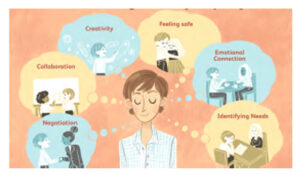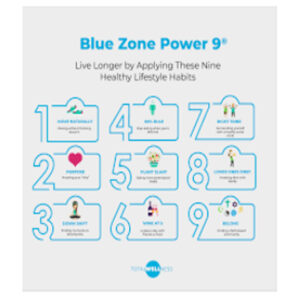Social Relationships: Effects on Physical and Mental Health
Monday, 22 March 2021
Share this article:
By Thalia K., Sec 3 LP
“The surprising finding is that our relationships and how happy we are in our relationships have a powerful influence on our health. Taking care of your body is important but tending to your relationships is a form of self-care too. That, I think, is the revelation.” – Robert Waldinger, a psychiatry professor at Harvard Medical School.

To what extent are social relationships physically, mentally, and emotionally healthy? Well, there is no definitive answer since not all social interactions invoke a positive outcome. However, scientific and sociological studies have collaborated to prove how such relationships, when positive, do wonders for an individual’s health.

Human beings are social creatures; not only do they require social relationships for a stable emotional state, but it is also crucial to their survival as a species. Therefore, a social relationship is any relationship with another human being: including familial, friendly, romantic, and professional connections.

Think about a time when a social interaction made you uneasy and another that made you feel overjoyed. Social relationships do have a tremendous impact on a person’s mental health, whether it is a negative or a positive one. A study conducted by scientist Richard Slatcher and his team has shown that people who can maintain a healthy marital relationship experience decreased cortisol levels, a hormone responsible for stress. The research concentrated on approximately 1000 adults, whose relationships and ways of communication were studied. The researchers then proceeded to examine their levels of cortisol using samples of their saliva. Expectedly, the data demonstrated a decline in cortisol levels for the people who maintained a healthy relationship. Furthermore, social connections have taught people how to empathize and help each other in times of stress. If it were not for empathy, the world would be disorderly, chaotic, and in turmoil. Moreover, compassion has a direct and positive effect on the person’s mental health. Novelist Mohsin Hamid had previously discussed such topics, saying that “empathy is about finding echoes of another person in yourself.” Social relationships have allowed people to assist each other, and most importantly themselves.

What might often be surprising is the effect of social ties on an individual’s physical health. Harvard Health’s research team had observed approximately 39,000 people’s relationships and health records over time. They had found a correlation between weak social relationships and risks in premature death. The risk can rise to 50%, which is more than what smoking and similar activities can cause. Conversely, maintaining strong connections allows people to live longer. An example of that is the Blue Zone Project that was started by National Geographic. The Blue Zone is a set of regions that have relatively low mortality rates. The tribes and communities they have are the main reasons for high life expectancy in those regions.

As previously stated, fruitful interactions shape people’s mental and physical state. Unfortunately, with the Covid pandemic that has taken the world by storm, it is rather challenging to maintain such relationships. Psychologist Louise Hawkley points out that isolation links to depression and abnormal sleeping patterns. However, social relationships are only one dimension of a person’s health. We should incite change within ourselves and our habits, as they also contribute to a well-nourished lifestyle.
Sources:
– Relationships and social connections can help you live longer. (n.d.). Retrieved March
03, 2021, from https://www.susquehannahealth.org/in-thecommunity/blog/relationships-and-social-connections-can-help-you-live-longer
– Publishing, H. (n.d.). The health benefits of strong relationships. Retrieved March 03,
2021, from https://www.health.harvard.edu/newsletter_article/the-health-benefits-ofsocial-relationships
– Mineo, L. (2018, November 26). Over nearly 80 years, Harvard study has been showing
how to live a healthy and happy life. Retrieved March 03, 2021, from
https://news.harvard.edu/gazette/story/2017/04/over-nearly-80-years-harvard-studyhas-been-showing-how-to-live-a-healthy-and-happy-life/
– https://journals.sagepub.com/doi/pdf/10.1177/0022146510383501
– Matthews, T., Danese, A., Wertz, J., Odgers, C., Ambler, A., Moffitt, T., & Arseneault, L.
(2016, March). Social isolation, loneliness and depression in young adulthood: A
behavioural genetic analysis. Retrieved March 03, 2021, from
https://www.ncbi.nlm.nih.gov/pmc/articles/PMC4819590/
– Matthews, T., Danese, A., Wertz, J., Odgers, C., Ambler, A., Moffitt, T., & Arseneault, L.
(2016, March). Social isolation, loneliness and depression in young adulthood: A
behavioural genetic analysis. Retrieved March 03, 2021, from
https://www.ncbi.nlm.nih.gov/pmc/articles/PMC4819590/




